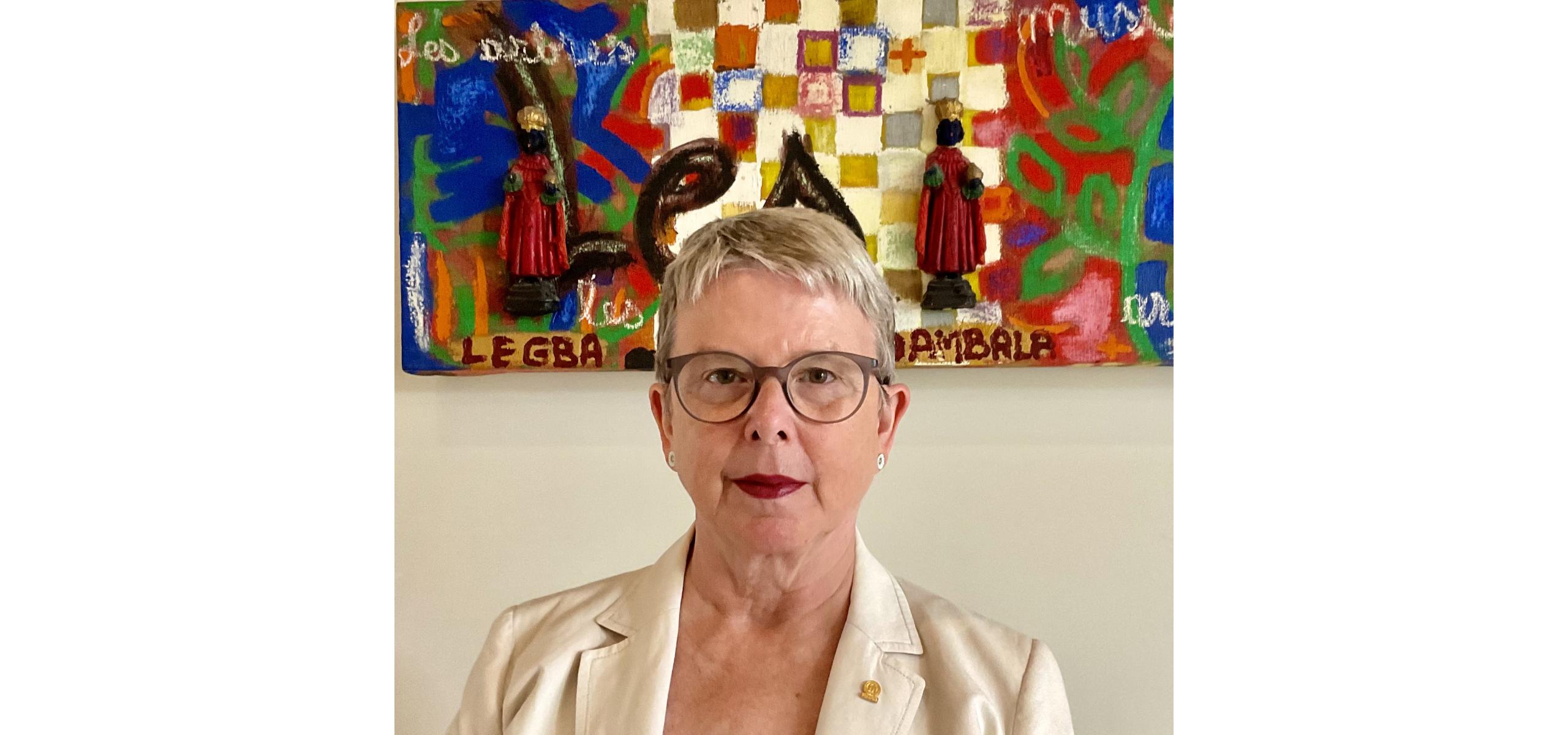
Image credit: Ellen Hansen
Ellen Hansen is the Convenor of International Refugee Law at the ANU College of Law. A former Deputy Regional Director for Asia and the Pacific and Head of Governance Service at the UN Refugee Agency (UNHCR), Ellen is passionate about sharing her policy and legal expertise and inspiring the next generation of refugee lawyers and policy makers.
In 2024 you convened the graduate course, International Refugee Law (LAWS8252). What drew you to teach this course?
My interest in international law started back at law school and has only grown since. International refugee law more specifically presents an endlessly evolving and important area of law to protect the most vulnerable. I left UNHCR in the middle of this year after 26 intense but rewarding years of working on refugee law and policy. The opportunity to convene the International Refugee Law course at ANU seemed like a natural transition to share the knowledge I have gained as a practitioner in the field, and hopefully to inspire the next generation of refugee lawyers and policy makers.
You have had an extensive and remarkable career in international law and policy. What have been some highlights?
Highlights of my career have included coordinating and being part of the team which developed the New York Declaration on Refugees and Migrants in 2016 and the Global Compact on Refugees in 2017-2018. The Compact was overwhelmingly affirmed by the United Nations General Assembly and complements the Refugee Convention. It has become the framework for more predictable and equitable responsibility sharing for refugees and their hosts. Steering the UNHCR's Executive Committee through COVID was another, perhaps less glamorous but nevertheless important, one. More recently, I worked on refugee challenges in the Asia-Pacific region, based in Bangkok, but travelling to meet with authorities and refugees throughout the region, including Afghanistan, Pakistan, Myanmar, and Bangladesh. Going further back, my 'monitoring' reports on Nauru and Manus Island from 2013 are still the most comprehensive reports by UNHCR on the detention and 'regional' processing claims of refugees who engaged Australia's protection obligations in those two places.
Before joining UNHCR, I represented Australia as a United Nations Disarmament Fellow in an era of great promise for disarmament and non-proliferation at the end of the Cold War. I was on a posting to the Australian Embassy in Paris when France resumed nuclear testing not long after, and was part of Australia's effort to end nuclear testing in the Pacific. Connecting news events with diplomatic and legal action has always been fascinating.
How has your real-world experience in international refugee law influenced how you've approached LAWS8252?
ANU already had a well-designed course and my approach is to complement that with my policy and legal experience both in government and in UNHCR. I believe it is essential to know the law, but also to be able to deploy it practically to make a difference to people, even when it might be uncomfortable and/or challenging to do so, for instance when you are dealing with de facto authorities.
What insights do you hope your students will gain from taking this course?
The students are a very diverse group who bring their own experiences and knowledge to the subject matter. I hope the course will meet their individual interests and encourage as well as prepare them to contribute in whatever way they choose to address the global displacement crisis for the benefit of refugees, but also ultimately for the benefit of all. The world is seeing more displaced people now than ever before and this touches us all.
Finally, what advice would you give to students hoping to specialise in international refugee law?
Go to the field to witness first hand situations of forced displacement, and listen to refugees!